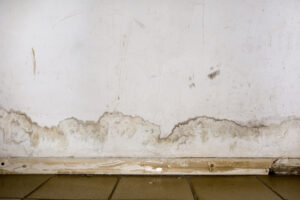Water Heater Flooding Basement
A flooding basement caused by a water heater can be devastating. So if you have a water heater flooding basement be sure to contact a water damage restoration company as soon as possible. They can help you repair the water damage to your property.
Can A Hot Water Heater Cause Flooding
A hot water heater can cause flooding if it is not properly maintained, or if the pressure relief valve fails, it can cause the hot water heater to burst. If the tank leaks, the water will escape and potentially flood the area around the heater. To prevent this from happening, it is important to check the tank regularly for any signs of leaks. If a leak is found, it should be repaired immediately.
What To Do When Water Heater Flooded
If your water heater has flooded, there are a few immediate steps you should take to minimize the damage. First, turn off the power to the unit. This will help prevent any further damage from occurring. Next, remove any standing water from around the unit. If possible, use a wet/dry vacuum to suction up the water. You may also need to mop up any remaining water with towels or a mop. Once the area is as dry as possible, you can begin to assess the damage.
If the flooding was caused by a faulty valve or other issue with the unit itself, you will likely need to replace the entire unit. However, if the flooding was due to an external issue, such as a broken pipe, you may be able to simply repair the damaged pipe and avoid replacing the entire water heater. In either case, it is important to have a professional assess the damage before proceeding. They will be able to advise you on the best course of action and help ensure that your water heater is repaired or replaced properly.
How Do I Stop My Water Heater From Flooding
One of the most common causes of water heater flooding is a broken pressure relief valve. This valve is designed to open and release water if the pressure inside the tank gets too high. However, over time, the valve can become corroded or damaged, preventing it from functioning properly. If you suspect that your pressure relief valve is not working properly, it’s important to have it checked by a qualified technician.
Another potential cause of water heater flooding is a break in the plumbing lines. This can be caused by freezing temperatures, corrosion, or damage from an earthquake or other natural disaster. If you suspect that there is a break in your plumbing lines, it’s important to have them repaired as soon as possible to prevent further damage.
Finally, water heater flooding can also be caused by an overflow in the tank itself. It’s important to regularly check your water heater and make sure that it is set to the correct temperature. By following these simple tips, you can help prevent water heater flooding and keep your home safe from water damage.
Flooded Basement
A flooded basement can be a serious problem for any homeowner. Not only can the water damage personal belongings, but it can also lead to mold and mildew growth. If the problem is not addressed quickly, the basement may become uninhabitable.

